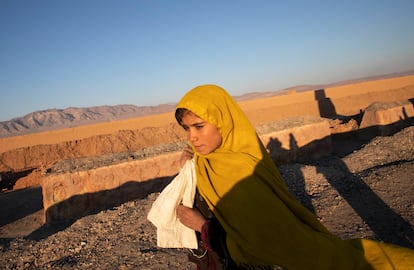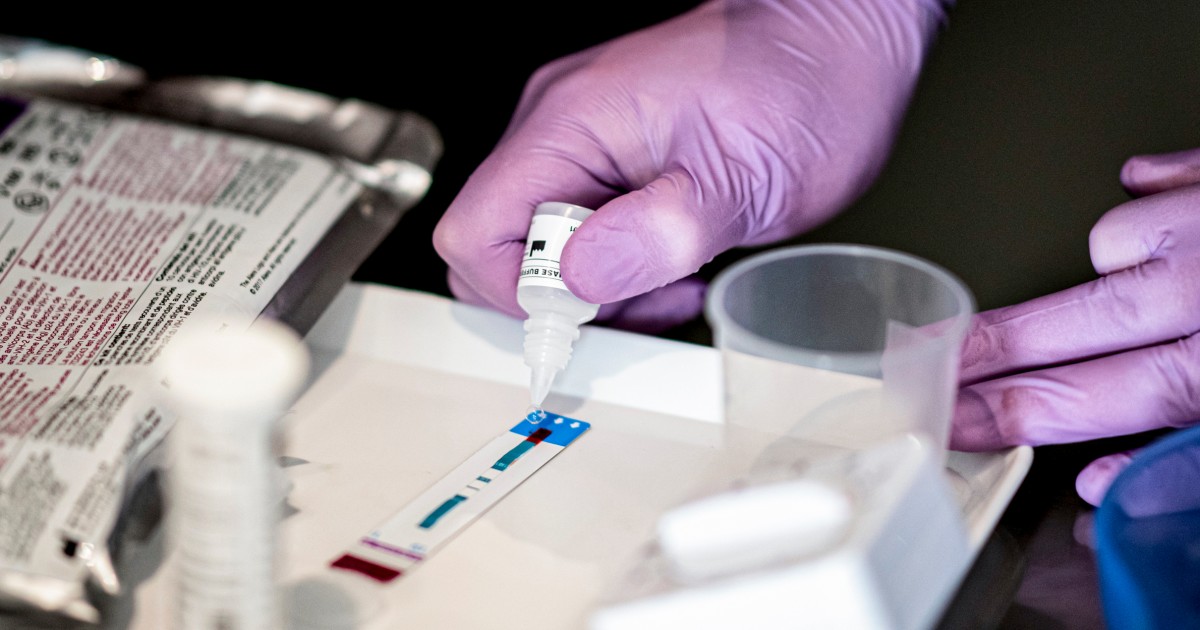Afghanistan is one of the youngest countries in the world.
Half of its 39 million people are under 18 and a third under 10. Yet Afghanistan has no children.
Forced to work for a living (especially boys) or given in marriage for a dowry (girls), Afghans become adults before their tenth birthday.
The interruption of international aid after the arrival of the Taliban is compounding the hardships of childhood.
You don't have to look far to find minors working in the markets or on the Afghan streets.
In the popular Taraqi Park of Herat, Afghanistan's third largest city and the economic center of the west of the country, an army of children, most of whom are under 10 years old, collect cans, cardboard, plastic containers and others. recyclable materials.
Eight-year-old Miran Jan, an elusive eye, tells that they are paid 20 afghanis (17 euro cents) per kilo.
He is the oldest of five siblings and thus helps his father, who collects firewood, but does not earn enough to support them all.
Seven-year-old Malihah points out that her father is out of work.
Samaah's, also seven, and his brother Bezir Ahmad, 12, is a drug addict.
There are many more.
They arrive early, between eight and nine in the morning, and leave when they manage to fill a bag almost as big as some of them, usually in the early afternoon. They take their merchandise to a rag and go home. They all say they give the earnings to their mothers. What if one day they do not achieve anything? Do they scold them? Do they hit them? Samaah answers no. Others are silent.
The older ones say they go to school. It is now closed because school holidays in most of Afghanistan are in winter, rather than summer. But everyone would prefer to be in class, including Malihah and Samaah who have not started yet, although they say they will do so next year. Others shine shoes, like Shir Agha (11), sell nuts like Marwa, who doesn't even know her age, or collect charcoal like Rabehe (12), Halimeh (eight) and Morteza (10) for those who can afford to light a stove.
Child labor is not new in Afghanistan.
According to a UN report, between 2.1 million and 2.6 million children between the ages of 6 and 14 carried out some type of work in 2018. But social educators who have fought it over the last two decades confirm that it has shot up following the suspension of international aid.
Rabehe, 12, was working in December near Herat.Yalda Moaiery
Abdul Qayum Afghan, who until the arrival of the Taliban was in charge of the Directorate of Social Affairs of the province of Herat, assures that “after the collapse of the regime the figure has increased both due to the general impoverishment of families and the arrival of more internally displaced persons from neighboring provinces ”. At the same time, the vocational training projects with which the NGOs try to get the kids off the street see their continuity compromised.
Such is the case of the Ansari Vocational Center, managed by Help Germany. "80% of our financing comes from Unicef," explains its project manager, Fridoom Hamidi, who fears that without these funds the workshops that offer boys (electricity, mechanics, mobile phone repair or cooking) and girls (sewing, aesthetics or crafts) cannot continue from January. In addition to training, its participants receive 3,500 Afghans a month, transportation assistance and the basic equipment to start their own business at the end of the course.
Another social worker, whose organization does not authorize him to speak to the press, warns that child labor is only one of the many vulnerabilities faced by Afghan children, among whom there are a high number of orphans, disabled people and victims of all kinds of abuse and violence, including sexual exploitation. At least 6.5 of the nearly 20 million Afghan minors are at risk.
As poverty is turning to misery, alarming cases of the sale of children come to light. In a camp for internally displaced persons on the outskirts of Qala-i-Naw, Hanifa, 40, places little Seifullah, of one, in the arms of the photographer, and Mahlagha, of 30, offers the journalist to one of his seven children, Emanelddin, four. It is not clear how much they ask for, or if it is rather a call for help in their situation. "Whatever they give us," they point out.
They are desperate.
"We are hungry and we do not have money to buy food," they explain amid coughing and with the thermometer below zero.
The only income of the 100 families living under precarious tents is what women get from peeling pistachios (50 Afghanis per 8 kilos) and the season is coming to an end.
All have their fingers bandaged from the injuries caused by the activity.
In the opinion of the social worker, the attitude of the families is “the result of harmful traditional practices and a lack of strategies to deal with problems”.
The NGOs warn against sensationalism.
Although there are cases of couples who choose to buy a baby due to the low cost of artificial insemination and the complexity of adoption, they assure that it is not a generalized practice.
Christophe Garnier, project manager at Doctors Without Borders, points out that, in the case of girls, “often, it is not really a sale as we conceive it in the West, but marriage agreements that advance the payment of the dowry". Even within these parameters, all those interviewed agree that the practice violates the rights of small girls.
“We are in a very serious situation.
If the international community does not pay attention, a tragedy is going to occur.
People have to eat and if they don't have an income, what are they supposed to do? ”Asks the former Afghan official, one of the few professionals who is not thinking of leaving the country and who has just registered an NGO, Refugees Aid. Afghanistan, with the intention of continuing his work from the private sphere.
In camps for internally displaced persons, representatives of families send the same message: let the international community make amends with the Taliban.
"Maybe when the bearded men fill our stomachs, something will come to us," mutters one of them, Gholam Haider.
Promised or sold?
Fatemeh has a doll face under the veil with flowers with which she already covers her hair at the age of five.
The unruly strands that escape show her hair dyed with henna, a clear sign that she is engaged.
She is not the only girl in the Shaidayee settlement for internally displaced persons, outside Herat, whose marriage has already been fixed.
Misery is encouraging many families to seek earlier and earlier marriage agreements to receive a dowry to alleviate their immediate needs.
The commitment between the girl's father and her future husband is established in a ceremony called
nikah,
but it does not translate into immediate coexistence.
Fatemeh's parents have engaged her to Fatullah, a 15-year-old boy who works as a laborer in Iran.
The dowry was set at "one lak", 100,000 Afghanis (about 850 euros), according to the mother, Shayesteh, 30.
“We were hungry;
We had no choice, "he justifies, although the money received so far" has hardly served to pay the debts. "
The woman is already thinking about finding a husband for little Farzaneh, three years old, who does not leave her side.
Mohammad Khan, 52, who has also promised his six-year-old daughter Salimeh, is quick to point out that "the boyfriends are working abroad to save for dowry, before they can take the girls."
According to their calculations, it usually takes them between five and 10 years to get the agreed amounts.
Even so, the girls will still be very young, something that does not seem to worry Mohammad Khan.
"We would not have given them to an older man," he says.
And the future husband of your daughter, is he a good boy?
"I dont know and I dont care.
We were hungry.
I had no money, nor do I have the possibility of working ”, he admits before admitting that he has nothing left of what he received and that his life has not changed.
Follow all the international information on
and
, or in
our weekly newsletter
.







